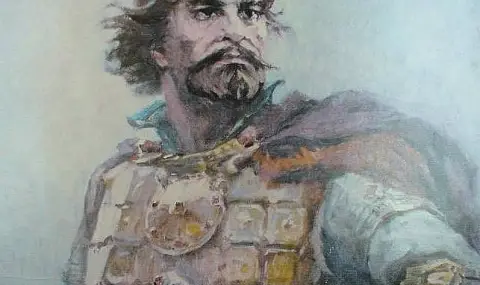On August 9, 681 on the 16th meeting of the Sixth Ecumenical Council in Constantinople, Presbyter Constantine for the first time mentioned the Bulgarian state as such.
The Sixth Ecumenical Council (or the Third Council of Constantinople) was held in the period from November 7, 680 to September 16, 681. Convoked by the emperor Constantine IV Pogonatus, the council made 102 important decisions, condemned the patriarchs Sergius I, Pyrrhus and Cyrus , as well as Pope Honorius I.
In his speech, Presbyter Constantine of Apameia mentions that if they had listened to him when he wanted to speak (even at the beginning of the council), “we would not have suffered what we suffered during the year, that is, what we suffered in the war with Bulgaria”.

This speech of Constantine is connected with the dating of the peace treaty between Bulgaria and Byzantium, which is the international recognition of Danube Bulgaria. Therefore, the beginning of Danube Bulgaria is counted from 681. Technically, however, this is recognition of a part of the previously recognized Great Bulgaria under Irakli Kubratova.
During the first years of his reign, Khan Asparukh carried out several important state affairs:
- regulates its relations with the Slavic tribes in the composition of the state, obliging them to guard the borders to the south and west;
- undertook a campaign against the Khazars, drove them to the west and expanded Bulgaria to the Timok River and the Carpathians;
- strengthens the new capital Pliska and restores the old fortress Druster and other fortified points;
- builds “the great presidium” – earth ditch and rampart – from Black Water on the Danube to Kyustenja on the Black Sea.
In 688, the Byzantine Emperor Justinian II broke the peace and embarked on a campaign towards Thessaloniki and Macedonia, but on his way back he fell into a Bulgarian ambush in the Eastern White Sea and suffered a complete rout.
Through his military and diplomatic actions, the Bulgarian ruler entered into an alliance with Kuber's Bulgaria in the lands of today's Macedonia, constantly threatened by Byzantium. Thus Khan Asparukh managed to join and protect the Slavic and Bulgarian population from these southwestern territories.
It is believed that Khan Asparukh approved the chronological monument “Name Book of Bulgarian Khans”.
The brave and invincible founder of the Bulgarian state Khan Asparukh died in the war against the Khazars in the northeast in the year 700.
